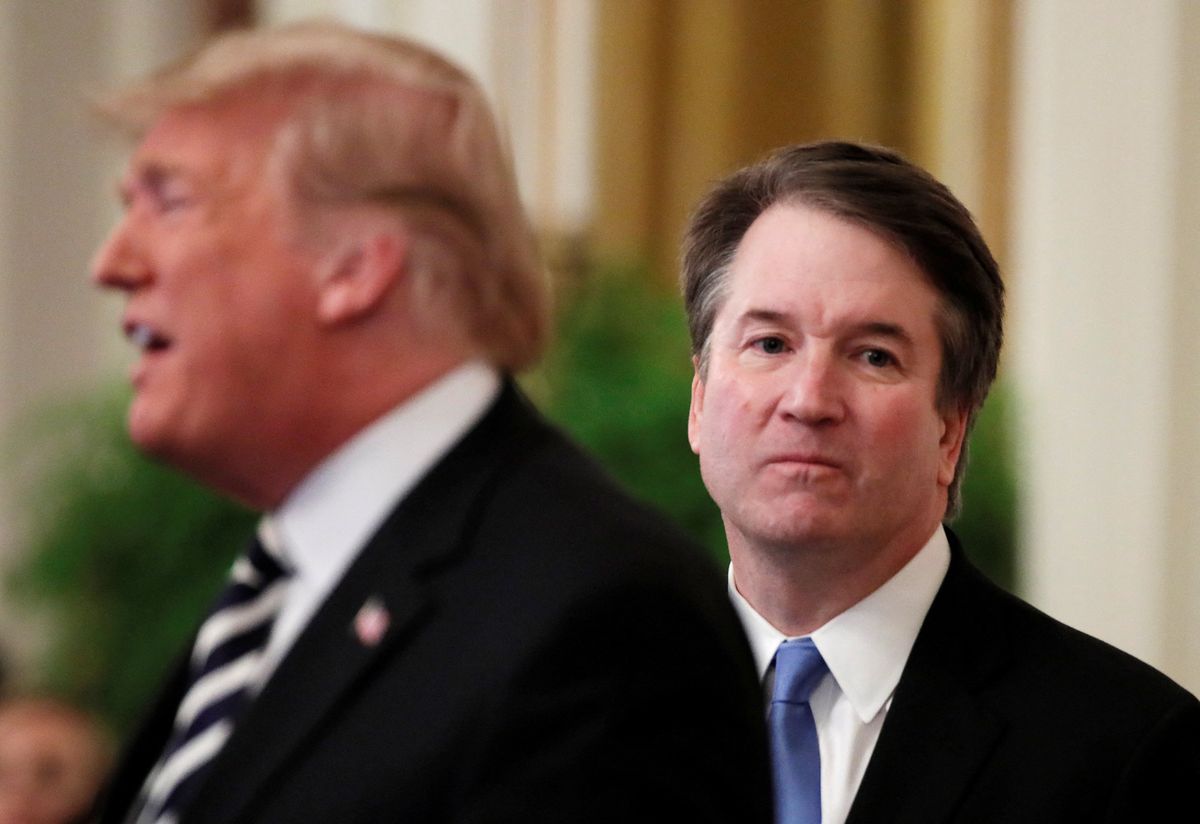
Lawyers and legal analysts mocked Supreme Court Justice Brett Kavanaugh this week after Bloomberg Law published comments he made about trying to "rebrand" the court's secretive process for releasing controversial decisions.
Kavanaugh, who was appointed by President Donald Trump in 2018, told Bloomberg Law that he prefers the term "interim docket" to "shadow docket" when describing instances when the Supreme Court deviates from its traditional procedures to decide a case. Data from SCOTUSBlog shows the court issued 113 decisions during the 2024-25 term through the so-called "shadow docket."
"I think the term ‘interim docket’ best captures it,” Kavanaugh told the outlet. “It’s not real catchy, so I’m not sure it’ll bloom, but that’s the term."
Lawyers and legal analysts mocked Kavanaugh's comments on social media.
"Kavanaugh reminds me a lot of an undergrad who thinks he is much smarter than he is," evolutionary biologist Joshua G. Schraiber posted on Bluesky. "I dare say Kavanaugh may actually just be stupid."
"Hey, look, no offense, you just have to be an exceptionally dumb motherf----- to think you can persuade a roomful of real judges of the 'danger' of saying too much in shadow docket orders a couple weeks after you accused them of defying you for not mind-reading what your crappy orders meant," appellate lawyer Matthew Stiegler posted on Bluesky.
"Few things better sum up how I feel about Kavanaugh, his place on the court, and his scholarship/contribution to the law better than the things he just goes out there and says," legal analyst Chris Geidner posted on Bluesky.
"Ah, yes, because the problem worthy of public debate is what we 'call' it when SCOTUS decides major issues without full briefing, argument, or written opinions—not, you know, what the Court is actually 'doing' in these cases," law professor Steve Vladeck posted on Bluesky.




